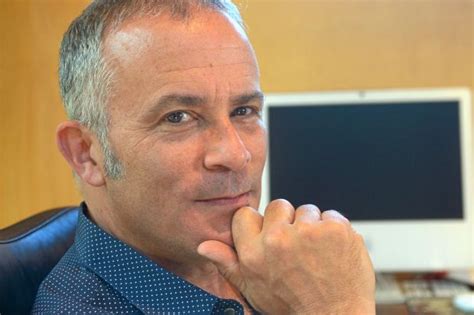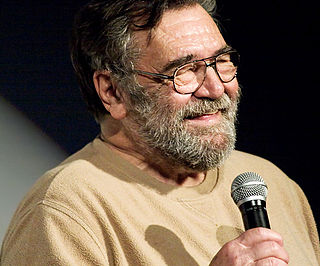A Quote by Jonathan Safran Foer
A few days after we came home from the hospital, I sent a letter to a friend, including a photo of my son and some first impressions of fatherhood. He responded, simply, 'Everything is possible again.' It was the perfect thing to write, because that was exactly how it felt. We could retell our stories and make them better, more representative or aspirational. Or we could choose to tell different stories. The world itself had another chance.
Quote Topics
After
Again
Another
Another Chance
Because
Better
Came
Chance
Choose
Could
Days
Different
Everything
Exactly
Fatherhood
Felt
Few
First
First Impression
First Impressions
Friend
Had
Home
Hospital
How
Impressions
Including
Itself
Letter
Make
More
My Son
Our
Perfect
Photo
Possible
Representative
Sent
Simply
Some
Son
Stories
Tell
Them
Thing
World
Write
Related Quotes
We read novels because we need stories; we crave them; we can’t live without telling them and hearing them. Stories are how we make sense of our lives and of the world. When we’re distressed and go to therapy, our therapist’s job is to help us tell our story. Life doesn’t come with plots; it’s messy and chaotic; life is one damn, inexplicable thing after another. And we can’t have that. We insist on meaning. And so we tell stories so that our lives make sense.
Yes, we could talk to you for days on end about all the bad first dates. Those are stories. Funny stories. Awkward stories. Stories we love to share, because by sharing them, we get something out of the hour or two we wasted on the wrong person. But that's all bad first dates are: short stories. Good first dates are more than short stories. They are first chapters. On a good first date, everything is springtime. And when a good first date becomes a relationship, the springtime lingers. Even after it's over, there can be springtime.
I knew what I wanted to do when I set out. I knew that I wanted to write a book that told the story, obviously. I wanted it be comedy first, because I felt like there already had been childhood druggy stories that were very serious, and I felt that the unique thing here was that I was a comic and I could tell the story with some levity, and I have been laughing at these stories my whole life.
He read the letter again, but could not take in any more meaning than he had done the first time and was reduced to staring at the handwriting itself. She had made her g's the same way he did : he searched through the letter for every one of them, and each felt like a friendly little wave glimpsed from behind a veil. The letter was an incredible treasure, proof that Lily Potter had lived, really lived, that her warm hand had once moved across this parchment, tracing ink into these letters, these words, words about him, Harry, her son.
I know people who have suffered writer's block, and I don't think I've ever had it. A friend of mine, for three years he couldn't write. And he said that he thought of stories and he knew the stories, could see the stories completely, but he could never find the door. Somehow that first sentence was never there. And without the door, he couldn't do the story. I've never experienced that. But it's a chilling thought.
So I found myself telling my own stories. It was strange: as I did it I realised how much we get shaped by our stories. It's like the stories of our lives make us the people we are. If someone had no stories, they wouldn't be human, wouldn't exist. And if my stories had been different I wouldn't be the person I am.
I am a man, and men are animals who tell stories. This is a gift from God, who spoke our species into being, but left the end of our story untold. That mystery is troubling to us. How could it be otherwise? Without the final part, we think, how are we to make sense of all that went before: which is to say, our lives? So we make stories of our own, in fevered and envious imitation of our Maker, hoping that we'll tell, by chance, what God left untold. And finishing our tale, come to understand why we were born.
I went back into the older stories and reworked them, because I became a better writer over the years and could spot flaws. I loved having another chance to make them stronger, and to bring them closer to me, made them less like a greatest hits compilation, and more like something written in the same extended burst.
My first book came out again - the re-issue from 2001. I was rereading it to make sure that I didn't miss any mistakes, and I didn't know who had written some of these stories. I really didn't. I am a different person now. It's weird. I think if stories are good, they have to have a life of their own that's independent of the writer. I like to think of my characters out there in other peoples' heads. That's a nice thing to think about.
I was in the hospital and I was paralyzed and I went through all of these things. I've had all of these crazy experiences and jobs in my life, but I never really write about them because I've already told them as stories to friends. For me, the process of writing is the process of invention. But the hospital story felt told already. There was nothing to discover in the telling of it. The discovery had to be in the form. It wasn't really the unfamiliarity of the form, it was more about a way incorporate invention and how to realize it imaginatively.







































